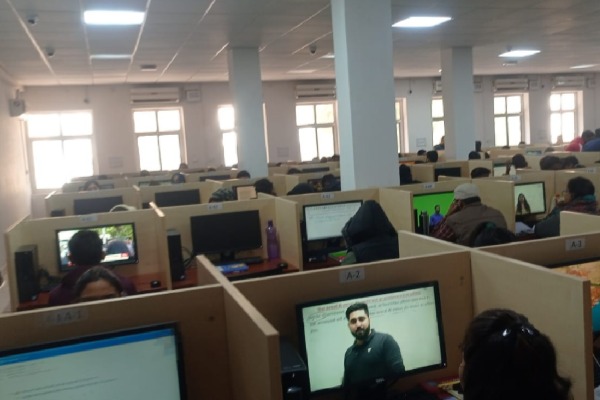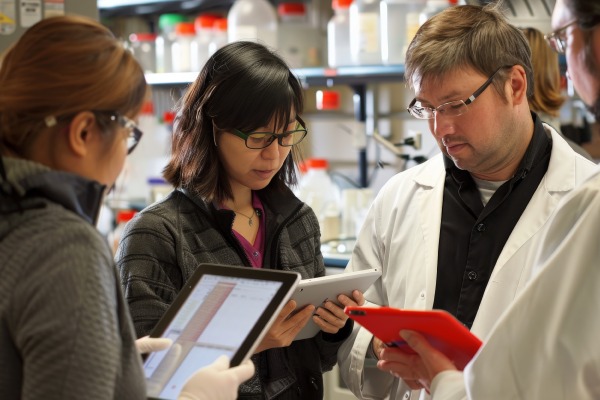
B Tech IT or B Tech CSE: Which One is Best for a Successful Career
Have you ever wondered which tech stream opens more doors: B Tech in IT or B Tech in CSE?
If you're stepping into the world of engineering after Class 12, chances are you're debating between these two in-demand courses. Both offer promising career paths in technology, involve programming, and are central to the digital economy. But beneath the surface, they differ in course structure, technical depth, and long-term job roles.
B Tech IT focuses on managing and applying technology in real-world settings, while B Tech CSE dives deep into computer theory, system architecture, and software development.
In this blog, you’ll find a clear breakdown of key subject areas, career options, salary trends, and future industry demand to help you decide — B Tech IT or B Tech CSE: Which One is Best for your future in tech?
Table of Contents
- Course Focus and Curriculum Structure
- Technical Skills Taught in Each Course
- Career Paths After Graduation
- Industry Trends and Job Demand
- Salaries and Growth Potential
- B Tech IT or B Tech CSE: Which One is Best
- Build Your Tech Career with the Right College
- Frequently Asked Question
Course Focus and Curriculum Structure
What You Study in B Tech IT
Information Technology focuses on the practical application of software systems in companies. It deals with data management, networking, software installation, and system security.
Common Subjects in IT
- Web Technologies
- Data Management Systems
- Software Engineering
- Information Security
- Networking and Cloud Systems
What You Study in B Tech CSE
Computer Science Engineering focuses more on building core computing systems. Students learn algorithm design, software development, hardware concepts, and operating systems.
Common Subjects in CSE
- Data Structures and Algorithms
- Operating Systems
- Computer Architecture
- Machine Learning and AI
- Programming Languages
Technical Skills Taught in Each Course
Skills Gained in IT
- Network administration
- System integration
- Software project management
- Cloud computing basics
- IT support and troubleshooting
Skills Gained in CSE
- Programming in Python, Java, C++
- Database design and optimisation
- Machine learning models
- Full-stack development
- Operating system management
Both courses teach important coding skills. However, CSE has a stronger foundation in mathematics, logic, and system design compared to IT.
Career Paths After Graduation
Top Career Options for IT Graduates
- IT Analyst
- Network Engineer
- System Administrator
- Cybersecurity Specialist
- Technical Support Lead
IT graduates work more in maintaining and managing technical systems for businesses and service-based companies.
Top Career Options for CSE Graduates
- Software Developer
- Data Scientist
- Machine Learning Engineer
- App Developer
- Blockchain Engineer
CSE graduates usually work in product-based tech companies, R&D labs, and startups developing new technologies.
Industry Trends and Job Demand
- India’s tech industry is expected to reach USD 350 billion by 2026.
- Artificial Intelligence, Cloud, and Cybersecurity are among the fastest-growing sectors.
- IT companies like Infosys, TCS, and Wipro hire thousands of both IT and CSE graduates every year.
- Startups and global product firms prefer CSE backgrounds for software engineering and data science roles.
- Companies now look for multi-skilled professionals, so learning beyond the syllabus is important in both courses.
Salaries and Growth Potential
Average Starting Salary for B Tech IT Graduates
- Ranges between ₹3.5 to ₹6 LPA in service-based companies.
- Higher roles like IT Manager or Cybersecurity Analyst can earn up to ₹12 LPA with experience.
Average Starting Salary for B Tech CSE Graduates
- Ranges between ₹5 to ₹8 LPA in product-based firms.
- Roles in machine learning or backend engineering may go up to ₹20 LPA in top companies.
While both courses offer good returns, CSE usually has more opportunities in global tech firms and research-driven roles.
B Tech IT or B Tech CSE: Which One is Best
If you enjoy managing technology and want to work with software tools in real-life applications, IT is a great fit. If you love problem-solving, logic, and developing systems from scratch, CSE is the better choice.
Here’s a simple comparison:
|
Feature |
B Tech IT |
B Tech CSE |
|
Focus |
Application of Tech Systems |
Development of Tech Systems |
|
Programming Depth |
Moderate |
Advanced |
|
Job Roles |
Support, Networking, Admin |
Development, R&D, Data Science |
|
Salary Potential |
Medium to High |
High to Very High |
|
Career Flexibility |
High in service-based industries |
High across industries |
Choose based on your strengths. If you want higher technical depth, CSE is the better choice. If you want practical roles in technology management, go for IT.
Build Your Tech Career with the Right College
Choosing the right stream is just the beginning. To succeed, you need a college that helps you build skills beyond the classroom.
If you want to study B Tech IT or B Tech CSE, join Dr. M.C. Saxena Group of Colleges that helps you gain both knowledge and placement support.
Build your future in technology with the guidance of experienced faculty and real industry exposure.
Frequently Asked Questions
Q1. Is B Tech CSE harder than B Tech IT?
A1. Yes. CSE involves more complex algorithms and requires strong mathematical skills. IT is more focused on application and support systems.
Q2. Can IT graduates become software developers?
A2. Yes. IT students with good programming skills can work as software developers, especially in service-based companies and startups.
Q3. Which has more scope abroad: IT or CSE?
A3. CSE has more global demand, especially in roles like data science, full-stack development, and AI. IT roles are also needed in enterprise setups.
Q4. Which is better for cybersecurity: IT or CSE?
A3. Both offer opportunities. However, IT covers more practical cybersecurity modules, making it slightly better for entering that field early





































































